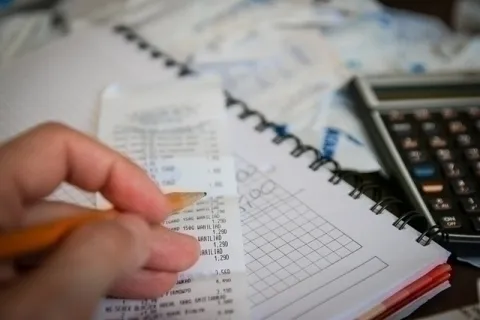How do you maintain a proper audit trail for your trades to ensure regulatory compliance?
» Rules, Regulations, and Compliance- Keep detailed records of all trades including dates, prices, volumes, and any relevant communications.
- Utilize compliant trading and accounting software that automatically logs all transactions and can generate reports for audits.
- Regularly review and update your record-keeping practices to adhere to evolving regulations and standards.
I'm very determined to adhere to all the regulations and keep things in check when it comes to my trades. I've been wondering, how do you folks out there manage to maintain a solid audit trail for your trades? I mean, the kind that ensures regulatory compliance and keeps you out of trouble. Any tips, experiences, or best practices you can share? Much appreciated!
Managing a solid audit trail for trades is crucial to ensure regulatory compliance and avoid trouble. Here are a few tips and best practices that might help:
1. Use a reliable trade tracking system or software to record all trade details accurately. This will help in maintaining a clear and organized audit trail.
2. Make it a habit to document every trade in real-time. Note down all relevant information, including trade dates, prices, quantities, and counterparties involved.
3. Keep supporting documents, such as trade confirmations, receipts, and invoices, in a secure and easily accessible format. This will serve as evidence if needed during an audit.
4. Regularly reconcile your trade records with bank statements and brokerage statements to ensure accuracy and identify any discrepancies.
5. Maintain a centralized repository for all trade-related documents and records, preferably in compliance with data privacy and security regulations.
6. Consider implementing appropriate backup and disaster recovery measures to prevent data loss or tampering.
7. Stay informed about the latest regulatory requirements and updates related to trade documentation and reporting. Compliance with these rules is essential to avoid penalties.
Remember, maintaining a solid audit trail is not only obligatory but also helps in improving transparency and trust in your trading activities.
Sure thing! Here are some tips to maintain a solid audit trail for your trades: Use reliable tracking software, document trades in real-time, keep supporting documents, reconcile records regularly, store documents securely, implement backup measures, and stay updated on regulations.
In my experience, maintaining a proper audit trail for trades can be quite a hassle. It's really time-consuming and can be prone to errors, especially with so many regulations to keep track of.
You're right, maintaining a proper audit trail can be incredibly tedious. At times, it feels like the effort involved takes up more time than the actual trading.
Well, I'd suggest automating the process as much as possible. There are systems out there that can track trades in real time, generate reports, and even alert you to irregularities. This might help turn a tedious task into a more manageable one.
Oh, the joys of paperwork! Who knew trading involved more documenting than dealing?
Right?! It's like you're more of a scribe than a trader. You'd think with all the technology we have today, there'd be a more streamlined approach to all the paperwork. Are there any tech wizards out there who've solved this problem? I know automation is key, but has anyone been able to effectively integrate technology to handle their trade audits? For those who have, how did you go about implementing it and what were the challenges? I'm all ears for techno-solutions.
Absolutely, it's a fascinating process! Despite the challenges, maintaining a strong audit trail is a valuable practice that ensures the integrity of the trading process. It's similar to keeping a detailed diary; for every transaction that occurs, a record must be logged.
Insurance is a crucial part of trading. All forms of trade, from commodities and forex to options, futures, and bonds, need an audit trail for protection against potential disputes or misunderstandings.
It's exciting to see how advancements in technology are simplifying these tasks. Innovative software solutions can automate the recording of every trade, providing peace of mind and freeing up more time for actual trading.
In this space where precision is key, the ability to revisit each trade, with all its associated data, can provide invaluable insights for future transactions.
So, while the task may seem daunting, it's a testament to the seriousness and professionalism of trading. The meticulous attention to detail required for regulatory compliance reflects the integrity of the industry. And hey, there's a certain satisfaction to knowing that all your i's are dotted, and your t's are crossed, isn't there?
I've found that using cloud-based systems for audit trails can be a real game-changer. It eliminates the need for physical storage, plus you can access your data from anywhere. Any thoughts on this?
Cloud storage sounds handy, but have you considered the potential security risks? How do you ensure your data stays protected against breaches?
- How does a trading bloc like the EU impact trade? 4
- How does the Producer Price Index (PPI) data impact the market? 8
- What tools can help me perform a fundamental analysis of a company? 2
- What are some trading platforms that allow for social trading/copy trading? 6
- Are there any tools that can help me with trading psychology and discipline? 2
- How do I deal with the fear of missing profits, or FOMP? 3
- Can you explain the concept of slippage in trading? 1
- How does seasonality impact market analysis? 4
- What is a securities' yield and how can it be analyzed? 5
- How do I use price charts for market analysis? 3
- How do you navigate the regulations surrounding short selling? 318
- What are Forex trading and its basics? 290
- How does seasonality impact market analysis? 252
- How do you manage stress during volatile market conditions? 217
- How does a stop-loss order work in trading? 205
- What tax implications should I consider when trading? 200
- What are the best platforms for online trading? 193
- What's the difference between day trading and long-term investing? 190
- What is swing trading and how is it different from day trading? 185
- How do you avoid letting past trading successes or failures impact your future decisions? 180

We have compared the best crypto exchanges for you. Just take a look at our free crypto exchange provider comparison.

We have compared the leading crypto tax tool providers for you. Check out our free crypto tax tool provider comparison.
Blog Posts | Current

Automating Your Trades: The Power of Trading Algorithms
As an avid trader, you've probably heard the buzz around trading algorithms. But what are they, and how can they...

Mastering Your Mindset: The Key to Successful Trading Psychology
As a trader, your success in the markets depends not only on your technical skills and market knowledge, but also...

Different Cost Average Trading Strategies
Cost Average Trading is one of the most popular trading strategies used by investors to minimize their risk and maximize...

Protect Your Capital with Effective Risk Management in Trading
Risk Management As a beginner trader, you're likely eager to dive into the markets and start making some profits. However, before...

From Chaos to Consistency: Why a Trading Setup is Key to Success
Trading is an exciting and rewarding way to make money, but it can also be overwhelming for beginners. One of...

Breaking Down the Buzzword: What is a Trading Bloc?
Are you familiar with the term "trading bloc"? It may sound complicated, but it's actually a concept that can have...

The 5 most common mistakes made by crypto traders
The 5 most common mistakes made by crypto traders Crypto trading is becoming increasingly popular, but there is great potential to...

The Trader's Dilemma: Dealing with Losses in Trading
As a trader, losses are an inevitable part of the game. Even the most successful traders will experience losing trades...

Maximizing Returns: The Importance of Rebalancing Your Portfolio
Rebalancing your portfolio is an important part of any long-term investment strategy. It involves periodically adjusting your portfolio's asset allocation...

Don't Fall for the Hype: The Risks of Using Trading Bots
As a beginner trader, you may have come across the idea of using trading bots to automate your trading and...
